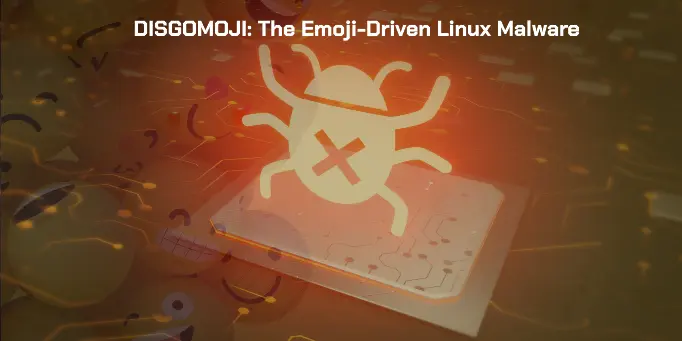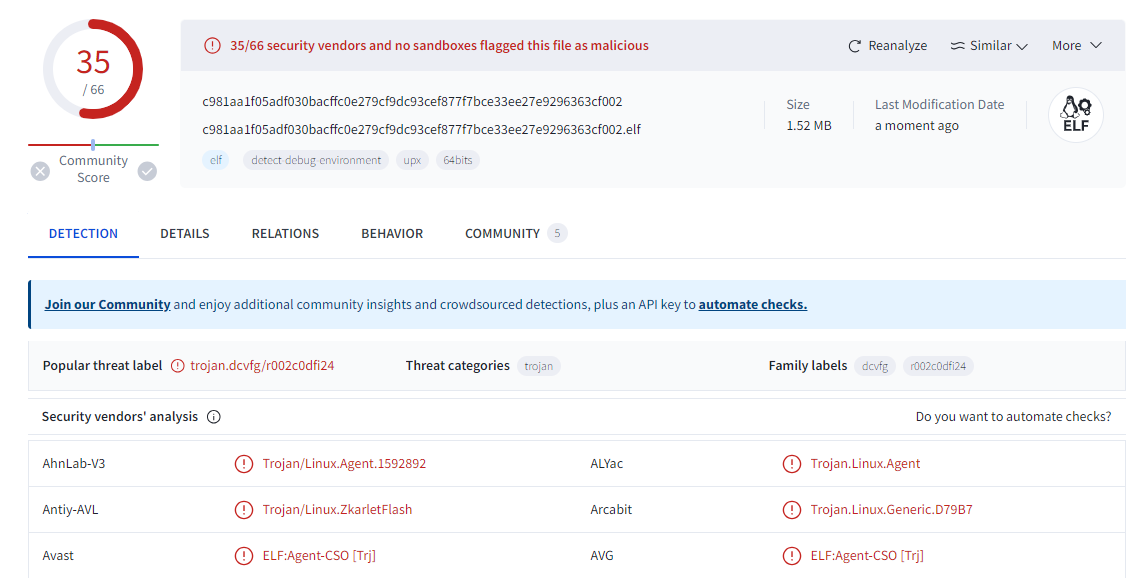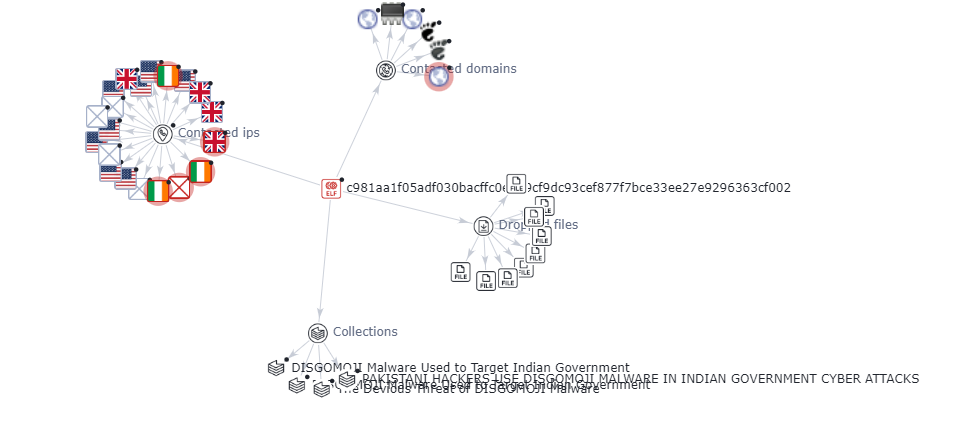#FactCheck - "AI-Generated Image of UK Police Officers Bowing to Muslims Goes Viral”
Executive Summary:
A viral picture on social media showing UK police officers bowing to a group of social media leads to debates and discussions. The investigation by CyberPeace Research team found that the image is AI generated. The viral claim is false and misleading.

Claims:
A viral image on social media depicting that UK police officers bowing to a group of Muslim people on the street.


Fact Check:
The reverse image search was conducted on the viral image. It did not lead to any credible news resource or original posts that acknowledged the authenticity of the image. In the image analysis, we have found the number of anomalies that are usually found in AI generated images such as the uniform and facial expressions of the police officers image. The other anomalies such as the shadows and reflections on the officers' uniforms did not match the lighting of the scene and the facial features of the individuals in the image appeared unnaturally smooth and lacked the detail expected in real photographs.

We then analysed the image using an AI detection tool named True Media. The tools indicated that the image was highly likely to have been generated by AI.



We also checked official UK police channels and news outlets for any records or reports of such an event. No credible sources reported or documented any instance of UK police officers bowing to a group of Muslims, further confirming that the image is not based on a real event.
Conclusion:
The viral image of UK police officers bowing to a group of Muslims is AI-generated. CyberPeace Research Team confirms that the picture was artificially created, and the viral claim is misleading and false.
- Claim: UK police officers were photographed bowing to a group of Muslims.
- Claimed on: X, Website
- Fact Check: Fake & Misleading
Related Blogs

Introduction
Deepfake technology, which combines the words "deep learning" and "fake," uses highly developed artificial intelligence—specifically, generative adversarial networks (GANs)—to produce computer-generated content that is remarkably lifelike, including audio and video recordings. Because it can provide credible false information, there are concerns about its misuse, including identity theft and the transmission of fake information. Cybercriminals leverage AI tools and technologies for malicious activities or for committing various cyber frauds. By such misuse of advanced technologies such as AI, deepfake, and voice clones. Such new cyber threats have emerged.
India Topmost destination for deepfake attacks
According to Sumsub’s identity fraud report 2023, a well-known digital identity verification company with headquarters in the UK. India, Bangladesh, and Pakistan have become an important participants in the Asia-Pacific identity fraud scene with India’s fraud rate growing exponentially by 2.99% from 2022 to 2023. They are among the top ten nations most impacted by the use of deepfake technology. Deepfake technology is being used in a significant number of cybercrimes, according to the newly released Sumsub Identity Fraud Report for 2023, and this trend is expected to continue in the upcoming year. This highlights the need for increased cybersecurity awareness and safeguards as identity fraud poses an increasing concern in the area.
How Deeepfake Works
Deepfakes are a fascinating and worrisome phenomenon that have emerged in the modern digital landscape. These realistic-looking but wholly artificial videos have become quite popular in the last few months. Such realistic-looking, but wholly artificial, movies have been ingrained in the very fabric of our digital civilisation as we navigate its vast landscape. The consequences are enormous and the attraction is irresistible.
Deep Learning Algorithms
Deepfakes examine large datasets, frequently pictures or videos of a target person, using deep learning techniques, especially Generative Adversarial Networks. By mimicking and learning from gestures, speech patterns, and facial expressions, these algorithms can extract valuable information from the data. By using sophisticated approaches, generative models create material that mixes seamlessly with the target context. Misuse of this technology, including the dissemination of false information, is a worry. Sophisticated detection techniques are becoming more and more necessary to separate real content from modified content as deepfake capabilities improve.
Generative Adversarial Networks
Deepfake technology is based on GANs, which use a dual-network design. Made up of a discriminator and a generator, they participate in an ongoing cycle of competition. The discriminator assesses how authentic the generated information is, whereas the generator aims to create fake material, such as realistic voice patterns or facial expressions. The process of creating and evaluating continuously leads to a persistent improvement in Deepfake's effectiveness over time. The whole deepfake production process gets better over time as the discriminator adjusts to become more perceptive and the generator adapts to produce more and more convincing content.
Effect on Community
The extensive use of Deepfake technology has serious ramifications for several industries. As technology develops, immediate action is required to appropriately manage its effects. And promoting ethical use of technologies. This includes strict laws and technological safeguards. Deepfakes are computer trickery that mimics prominent politicians' statements or videos. Thus, it's a serious issue since it has the potential to spread instability and make it difficult for the public to understand the true nature of politics. Deepfake technology has the potential to generate totally new characters or bring stars back to life for posthumous roles in the entertainment industry. It gets harder and harder to tell fake content from authentic content, which makes it simpler for hackers to trick people and businesses.
Ongoing Deepfake Assaults In India
Deepfake videos continue to target popular celebrities, Priyanka Chopra is the most recent victim of this unsettling trend. Priyanka's deepfake adopts a different strategy than other examples including actresses like Rashmika Mandanna, Katrina Kaif, Kajol, and Alia Bhatt. Rather than editing her face in contentious situations, the misleading film keeps her look the same but modifies her voice and replaces real interview quotes with made-up commercial phrases. The deceptive video shows Priyanka promoting a product and talking about her yearly salary, highlighting the worrying development of deepfake technology and its possible effects on prominent personalities.
Actions Considered by Authorities
A PIL was filed requesting the Delhi High Court that access to websites that produce deepfakes be blocked. The petitioner's attorney argued in court that the government should at the very least establish some guidelines to hold individuals accountable for their misuse of deepfake and AI technology. He also proposed that websites should be asked to identify information produced through AI as such and that they should be prevented from producing illegally. A division bench highlighted how complicated the problem is and suggested the government (Centre) to arrive at a balanced solution without infringing the right to freedom of speech and expression (internet).
Information Technology Minister Ashwini Vaishnaw stated that new laws and guidelines would be implemented by the government to curb the dissemination of deepfake content. He presided over a meeting involving social media companies to talk about the problem of deepfakes. "We will begin drafting regulation immediately, and soon, we are going to have a fresh set of regulations for deepfakes. this might come in the way of amending the current framework or ushering in new rules, or a new law," he stated.
Prevention and Detection Techniques
To effectively combat the growing threat posed by the misuse of deepfake technology, people and institutions should place a high priority on developing critical thinking abilities, carefully examining visual and auditory cues for discrepancies, making use of tools like reverse image searches, keeping up with the latest developments in deepfake trends, and rigorously fact-check reputable media sources. Important actions to improve resistance against deepfake threats include putting in place strong security policies, integrating cutting-edge deepfake detection technologies, supporting the development of ethical AI, and encouraging candid communication and cooperation. We can all work together to effectively and mindfully manage the problems presented by deepfake technology by combining these tactics and adjusting the constantly changing terrain.
Conclusion
Advanced artificial intelligence-powered deepfake technology produces extraordinarily lifelike computer-generated information, raising both creative and moral questions. Misuse of tech or deepfake presents major difficulties such as identity theft and the propagation of misleading information, as demonstrated by examples in India, such as the latest deepfake video involving Priyanka Chopra. It is important to develop critical thinking abilities, use detection strategies including analyzing audio quality and facial expressions, and keep up with current trends in order to counter this danger. A thorough strategy that incorporates fact-checking, preventative tactics, and awareness-raising is necessary to protect against the negative effects of deepfake technology. Important actions to improve resistance against deepfake threats include putting in place strong security policies, integrating cutting-edge deepfake detection technologies, supporting the development of ethical AI, and encouraging candid communication and cooperation. We can all work together to effectively and mindfully manage the problems presented by deepfake technology by combining these tactics and making adjustments to the constantly changing terrain. Creating a true cyber-safe environment for netizens.
References:
- https://yourstory.com/2023/11/unveiling-deepfake-technology-impact
- https://www.indiatoday.in/movies/celebrities/story/deepfake-alert-priyanka-chopra-falls-prey-after-rashmika-mandanna-katrina-kaif-and-alia-bhatt-2472293-2023-12-05
- https://www.csoonline.com/article/1251094/deepfakes-emerge-as-a-top-security-threat-ahead-of-the-2024-us-election.html
- https://timesofindia.indiatimes.com/city/delhi/hc-unwilling-to-step-in-to-curb-deepfakes-delhi-high-court/articleshow/105739942.cms
- https://www.indiatoday.in/india/story/india-among-top-targets-of-deepfake-identity-fraud-2472241-2023-12-05
- https://sumsub.com/fraud-report-2023/

Executive Summary:
New Linux malware has been discovered by a cybersecurity firm Volexity, and this new strain of malware is being referred to as DISGOMOJI. A Pakistan-based threat actor alias ‘UTA0137’ has been identified as having espionage aims, with its primary focus on Indian government entities. Like other common forms of backdoors and botnets involved in different types of cyberattacks, DISGOMOJI, the malware allows the use of commands to capture screenshots, search for files to steal, spread additional payloads, and transfer files. DISGOMOJI uses Discord (messaging service) for Command & Control (C2) and uses emojis for C2 communication. This malware targets Linux operating systems.
The DISCOMOJI Malware:
- The DISGOMOJI malware opens a specific channel in a Discord server and every new channel corresponds to a new victim. This means that the attacker can communicate with the victim one at a time.
- This particular malware connects with the attacker-controlled Discord server using Emoji, a form of relay protocol. The attacker provides unique emojis as instructions, and the malware uses emojis as a feedback to the subsequent command status.
- For instance, the ‘camera with flash’ emoji is used to screenshots the device of the victim or to steal, the ‘fox’ emoji cracks all Firefox profiles, and the ‘skull’ emoji kills the malware process.
- This C2 communication is done using emojis to ensure messaging between infected contacts, and it is almost impossible for Discord to shut down the malware as it can always change the account details of Discord it is using once the maliciou server is blocked.
- The malware also has capabilities aside from the emoji-based C2 such as network probing, tunneling, and data theft that are needed to help the UTA0137 threat actor in achieving its espionage goals.
Specific emojis used for different commands by UTA0137:
- Camera with Flash (📸): Captures a picture of the target device’s screen as per the victim’s directions.
- Backhand Index Pointing Down (👇): Extracts files from the targeted device and sends them to the command channel in the form of attachments.
- Backhand Index Pointing Right (👉): This process involves sending a file found on the victim’s device to another web-hosted file storage service known as Oshi or oshi[. ]at.
- Backhand Index Pointing Left (👈): Sends a file from the victim’s device to transfer[. ]sh, which is an online service for sharing files on the Internet.
- Fire (🔥): Finds and transmits all files with certain extensions that exist on the victim’s device, such as *. txt, *. doc, *. xls, *. pdf, *. ppt, *. rtf, *. log, *. cfg, *. dat, *. db, *. mdb, *. odb, *. sql, *. json, *. xml, *. php, *. asp, *. pl, *. sh, *. py, *. ino, *. cpp, *. java,
- Fox (🦊): This works by compressing all Firefox related profiles in the affected device.
- Skull (💀): Kills the malware process in windows using ‘os. Exit()’
- Man Running (🏃♂️): Execute a command on a victim’s device. This command receives an argument, which is the command to execute.
- Index Pointing up (👆) : Upload a file to the victim's device. The file to upload is attached along with this emoji
Analysis:
The analysis was carried out for one of the indicator of compromised SHA-256 hash file- C981aa1f05adf030bacffc0e279cf9dc93cef877f7bce33ee27e9296363cf002.
It is found that most of the vendors have marked the file as trojan in virustotal and the graph explains the malicious nature of the contacted domains and IPs.


Discord & C2 Communication for UTA0137:
- Stealthiness: Discord is a well-known messaging platform used for different purposes, which means that sending any messages or files on the server should not attract suspicion. Such stealthiness makes it possible for UTA0137 to remain dormant for greater periods before launching an attack.
- Customization: UTA0137 connected to Discord is able to create specific channels for distinct victims on the server. Such a framework allows the attackers to communicate with each of the victims individually to make a process more accurate and efficient.
- Emoji-based protocol: For C2 communication, emojis really complicates the attempt that Discord might make to interfere with the operations of the malware. In case the malicious server gets banned, malware could easily be recovered, especially by using the Discord credentials from the C2 server.
- Persistence: The malware, as stated above, has the ability to perpetually exist to hack the system and withstand rebooting of systems so that the virus can continue to operate without being detected by the owner of the hacked system.
- Advanced capabilities: Other features of DISGOMOJI are the Network Map using Nmap scanner, network tunneling through Chisel and Ligolo and Data Exfiltration by File Sharing services. These capabilities thus help in aiding the espionage goals of UTA0137.
- Social engineering: The virus and the trojan can show the pop-up windows and prompt messages, for example the fake update for firefox and similar applications, where the user can be tricked into inputting the password.
- Dynamic credential fetching: The malware does not write the hardcoded values of the credentials in order to connect it to the discord server. This also inconveniences analysts as they are unable to easily locate the position of the C2 server.
- Bogus informational and error messages: They never show any real information or errors because they do not want one to decipher the malicious behavior easily.
Recommendations to mitigate the risk of UTA0137:
- Regularly Update Software and Firmware: It is essential to regularly update all the application software and firmware of different devices, particularly, routers, to prevent hackers from exploiting the discovered and disclosed flaws. This includes fixing bugs such as CVE-2024-3080 and CVE-2024-3912 on ASUS routers, which basically entails solving a set of problems.
- Implement Multi-Factor Authentication: There are statistics that show how often user accounts are attacked, it is important to incorporate multi-factor authentication to further secure the accounts.
- Deploy Advanced Malware Protection: Provide robust guard that will help the user recognize and prevent the execution of the DISGOMOJI malware and similar threats.
- Enhance Network Segmentation: Utilize stringent network isolation mechanisms that seek to compartmentalize the key systems and data from the rest of the network in order to minimize the attack exposure.
- Monitor Network Activity: Scanning Network hour to hour for identifying and handling the security breach and the tools such as Nmap, Chisel, Ligolo etc can be used.
- Utilize Threat Intelligence: To leverage advanced threats intelligence which will help you acquire knowledge on previous threats and vulnerabilities and take informed actions.
- Secure Communication Channels: Mitigate the problem of the leakage of developers’ credentials and ways of engaging with the discord through loss of contact to prevent abusing attacks or gaining control over Discord as an attack vector.
- Enforce Access Control: Regularly review and update the user authentication processes by adopting stricter access control measures that will allow only the right personnel to access the right systems and information.
- Conduct Regular Security Audits: It is important to engage in security audits periodically in an effort to check some of the weaknesses present within the network or systems.
- Implement Incident Response Plan: Conduct a risk assessment, based on that design and establish an efficient incident response kit that helps in the early identification, isolation, and management of security breaches.
- Educate Users: Educate users on cybersecurity hygiene, opportunities to strengthen affinity with the University, and conduct retraining on threats like phishing and social engineering.
Conclusion:
The new threat actor named UTA0137 from Pakistan who was utilizing DISGOMOJI malware to attack Indian government institutions using embedded emojis with a command line through the Discord app was discovered by Volexity. It has the capability to exfiltrate and aims to steal the data of government entities. The UTA0137 was continuously improved over time to permanently communicate with victims. It underlines the necessity of having strong protection from viruses and hacker attacks, using secure passwords and unique codes every time, updating the software more often and having high-level anti-malware tools. Organizations can minimize advanced threats, the likes of DISGOMOJI and protect sensitive data by improving network segmentation, continuous monitoring of activities, and users’ awareness.
References:
https://otx.alienvault.com/pulse/66712446e23b1d14e4f293eb
https://thehackernews.com/2024/06/pakistani-hackers-use-disgomoji-malware.html?m=1
https://cybernews.com/news/hackers-using-emojis-to-command-malware/
https://www.volexity.com/blog/2024/06/13/disgomoji-malware-used-to-target-indian-government/

Executive Summary:
Recently, a viral social media post alleged that the Delhi Metro Rail Corporation Ltd. (DMRC) had increased ticket prices following the BJP’s victory in the Delhi Legislative Assembly elections. After thorough research and verification, we have found this claim to be misleading and entirely baseless. Authorities have asserted that no fare hike has been declared.
Claim:
Viral social media posts have claimed that the Delhi Metro Rail Corporation Ltd. (DMRC) increased metro fares following the BJP's victory in the Delhi Legislative Assembly elections.


Fact Check:
After thorough research, we conclude that the claims regarding a fare hike by the Delhi Metro Rail Corporation Ltd. (DMRC) following the BJP’s victory in the Delhi Legislative Assembly elections are misleading. Our review of DMRC’s official website and social media handles found no mention of any fare increase.Furthermore, the official X (formerly Twitter) handle of DMRC has also clarified that no such price hike has been announced. We urge the public to rely on verified sources for accurate information and refrain from spreading misinformation.

Conclusion:
Upon examining the alleged fare hike, it is evident that the increase pertains to Bengaluru, not Delhi. To verify this, we reviewed the official website of Bangalore Metro Rail Corporation Limited (BMRCL) and cross-checked the information with appropriate evidence, including relevant images. Our findings confirm that no fare hike has been announced by the Delhi Metro Rail Corporation Ltd. (DMRC).

- Claim: Delhi Metro price Hike after BJP’s victory in election
- Claimed On: X (Formerly Known As Twitter)
- Fact Check: False and Misleading


